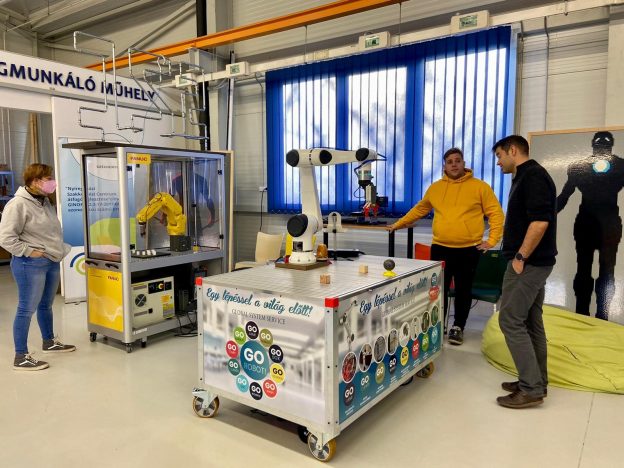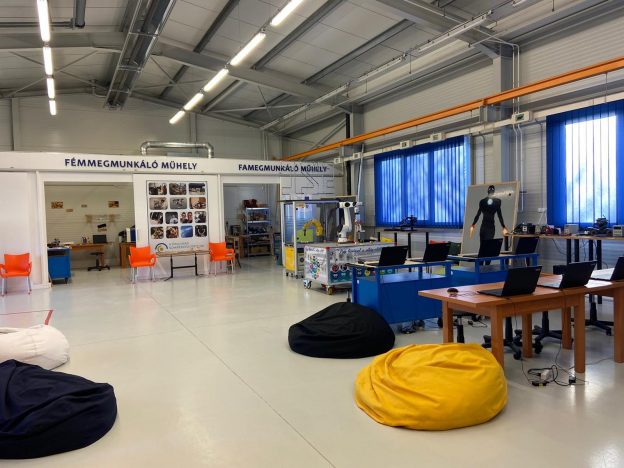CROSS – Creating other study spaces
Final press release, 01.07.2022
The transnational project CROSS focusing on the changed basic conditions in adult education is carried out within the scope of ERASMUS+ as a Strategic Partnership for exchanging good practice, presents and interchanges examples of “best practice” as implemented by various providers of adult education. New concepts for cooperation between public libraries and facilities offering adult education are also presented, in which case the main focus is on the “Third Place” (Ray Oldenburg) approach. This approach is chosen to reach people which never use public libraries and/or facilities offering adult education to improve their knowledge or skills.
The project, which runs from September 2019 to August 2022 with a total of seven adult education institutions and libraries from Europe of which the VHS Iserlohn (www.iserlohn.de), is the coordinating partner. Besides Iserlohn’s City Library and partner city Nyíregyháza in Hungary (www.nyiregyhaza.hu), other project partners from Romania (www.bjc.ro), Spain (www.caudete.es), Luxembourg (www.gero.lu), Slovenia (www.mkk.si) and the Netherlands (www.stichtingwerkenenleren.nl and www.bibliotheekoosterschelde.nl) are involved.
The aim of the project is to investigate the changed framework conditions faced by continuing education institutions and to develop new concepts. It aims at the transnational transfer, development and implementation of innovations in the field of adult education, focusing on the concept of the “third place” as a learning space.
With the final meeting the project partners set up
- a draft of a toolbox to develop, establish and run Third Place adult education-concepts and
- a letter to Europe for Creating other study spaces:
We believe that Europe needs low-threshold meeting and educational opportunities for people of all backgrounds, ages and cultures more than ever. We call these places – in the sense of Ray Oldenburg – Third Places.
We believe that it is a crucial task of public services to create such places. For this purpose, it is a good idea for a start to use well-known existing places such as libraries, adult education centres, but also private initiatives in cafés, parks and clubs.
With our project we have shown how this can work for people of different age groups, different origins and different levels of education.
We therefore call on all those responsible in Europe to do more in the future for the creation and establishing of such places and spaces, so that access to education is possible at a low-threshold level and our society enables lifelong learning for all.
With our toolbox we show many ways how such offers can be created analogue and digitally at different places in and outside buildings and how all people can be addressed.













